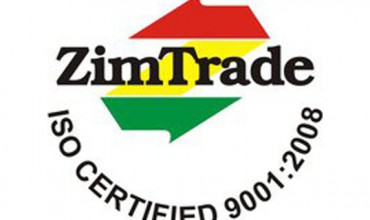
A LEADING economist says the country is heavily reliant on foreign direct investment (FDI).
BY TATIRA ZWINOIRA
Speaking at the Zimbabwe National Chamber of Commerce Business review conference on Monday, Tony Hawkins said the imbalance of spending has caused the country to rely heavily on FDI and that policy must be examined.
“Policymakers seem to believe that such dependence on foreign capital cannot only continue, but increase as illustrated in the signing of mega-deals with China,” he said, adding emerging markets such as Ghana Mozambique and Zambia are finding out that FDI is adding to their costs as it is a stop-start strategy.
“This massive imbalance and negative savings which is -9% of GDP, means that investment, and with it growth, are wholly reliant on foreign funding like FDI, Diaspora remittances, aid and foreign borrowing.”
He said going forward it will become increasingly difficult to attract foreign capital as global interest rates rise, starting next week in the United States, followed in short order by South Africa.
In Zimbabwe, over 90% of the increase in domestic spending has been consumption spending, 56% of that by the private sector and 44% by government, whose current spending has more than tripled from $900 million in 2009 to over $3 billion nearly six years later.
As a result, the country has turned into a cash-generated model that can only fund itself based on readily available cash that has come under severe strain, due to an on-going liquidity crunch.
- Chamisa under fire over US$120K donation
- Mavhunga puts DeMbare into Chibuku quarterfinals
- Pension funds bet on Cabora Bassa oilfields
- Councils defy govt fire tender directive
Keep Reading
This has led to an FDI dependent economy that is now under threat from a potential increase in interest rates from the United States federal government.
ZimTrade chief executive officer Sithembile Pilime said though big investment is good, the country could stand to benefit from seeking smaller investments that can also value-add.
“Big investment projects are good, but let us not overlook the smaller investment projects with a focus on manufacturing and value addition as they are beneficial through job creation.

FDI inflows, especially in the manufacturing sector, will influence the country’s wider economic growth and development,” Pilime said.
In September 2015, investment applications topped $3,2 billion in 2015.
Actual investment inflows according to 2016 Budget Statement is conservative at $650 million.
Zimbabwe Investment Authority chairperson Nigel Chanakira said every country in the world will now be competing for FDI and incentives were needed to attract investors to the country.
“Every country in the world is competing for FDI as such there is need for Zimbabwe to craft clear and cohesive FDI policy with articulated commitment to sustainability. All top FDI recipient countries invest in this programme,” Chanakira said.
He said promoting FDI is a process not an event and it encompasses a number of disciplined activities that boost and build up the country’s image and should position it in the minds of investment decision- makers.











